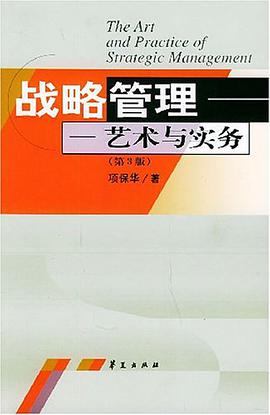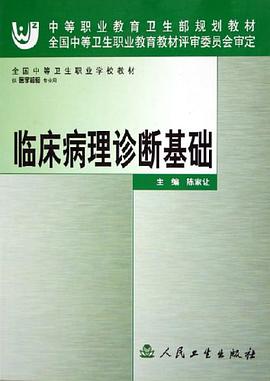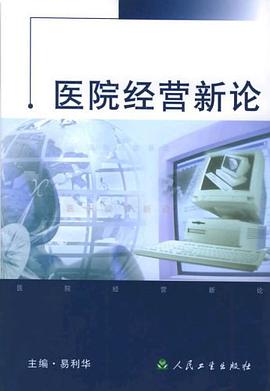

具体描述
How I Became Involved In 1966, I heard a scientist
give a lecture on the problems of overpopulation and
environmental abuse. Afterward, I went to him and
said, "If even a fraction of what you have said is true, I
will feel ethically obligated to give up my research on
the corrosion of metals and devote the rest of my life to
research and education on environmental problems
and solutions. Frankly, I don't want to believe a word
you have said, and I'm going into the literature to try to
prove that your statements are either untrue or grossly
distorted."
After six months of study, I was convinced of the
seriousness of these problems. Since then, I have been
studying, teaching, and writing about them. This book
summarizes what I have learned in almost three de-
cades of trying to ufiderstand environmental princi-
ples, problems, connections, and solutions.
My Philosophy of Education I agree with Nor-
man Cousin's statement: "The first aim of education
should not be to prepare young people for careers, but
to enable them to develop a respect for life." In our
lifelong pursuit of knowledge, I believe we should do
three things. The first is to question everything and
everybody, as any good scientist does. Second, each of
us should develop a list of principles, concepts, and
rules to be used as guidelines in making decisions, and
to continually evaluate and modify this list as a result
of experience. This is based on my belief that the pur-
pose of our lifelong pursuit of education is to learn
how to sift through mountains of facts and ideas to
find the few that are most useful and worth knowing.
We need an earth-wisdom revolution, not an information
revolution.
Third, I believe in interacting with what I read. I
do this by marking key sentences and paragraphs with
a highlighter or pen. I put an asterisk in the margin
next to something I think is important, and double as-
terisks next to something that I think is especially im-
portant. I write comments in the margins, such as Beau-
tiful, Confusing, Bull, or Wrong. I fold down the top
corner of pages with highlighted passages and the top
and bottom corners of especially important pages.
This way, I can flip through a book and quickly review
the key passages. I urge
with this book.
you to interact in such ways
Key Features This book is designed to be used in ii
troductory courses on environmental science. It trea
environmental science as an interdisciplinary stud
combining ideas and information from natural sc
ences (such as biology, chemistry, and geology) an
social sciences (such as economics, politics, and ethic
to present a general idea of how nature works an
how things are interconnected. It is a study of conne~
tions in nature.
After major environmental problems are di~
cussed, various solutions to them proposed by a var
ety of scientists, environmental activists, and analysl
are given. A range of possible solutions--some of ther
highly controversial--is provided to encourage you t
think critically and make up your own mind.
Each chapter begins with a brief Earth Story, a cas
study designed to capture interest and set the stage fc
the material that follows. In addition to these 19 cas
studies, 53 other case studies are found throughout th
book; they provide a more detailed look at specific er
vironmental problems and their possible solutiom
Sixteen Guest Essays (five of them new) present an ir
dividual researcher's or activist's point of view, whic
are then evaluated by two critical thinking question~
In this book I use scientific laws, principles, mo~
els, and concepts to help us understand both enviror
mental and resource problems and their possible sok
tions, and how these concepts, problems, and solution
are connected. I have introduced only those concepi
and principles necessary for understanding the mate1
ial in this book, and have tried to present them simpl
but accurately. The key principles and concepts used i:
this textbook are summarized inside the back cover.
My aim is to provide a readable and accurate ir
troduction to environmental science without the us
of mathematics or complex scientific information. T
help ensure that the material is accurate and up-tc
date, I have consulted more than 10,000 researcl
soffrces in the professional literature. In writing thi
book, I have also benefited from the more than 200 e~
perts and teachers who have provided detailed rc
views of the editions of this and my other four book
in this field (see list on pp. ix-x).
作者简介
目录信息
读后感
评分
评分
评分
评分
用户评价
我得说,初次接触这本书时,我其实是抱着一种相当怀疑的态度,毕竟现在市面上充斥着太多故作高深的文学作品,读起来累心又费神。但是,这本书却以一种近乎粗粝的真诚,彻底打破了我的预期。它的语言风格非常大胆且具有侵略性,毫不留情地撕开了现代社会中那些虚伪的遮羞布,直指人性的幽暗角落。它不像某些作品那样试图用华丽的辞藻去粉饰太平,反而更像是一把手术刀,精准、冷酷地剖析着我们每个人都在努力隐藏的那些弱点和矛盾。情节的推进更是出人意料,每一个转折都设计得巧妙而残酷,让人在拍案叫绝的同时,又不禁感到脊背发凉。我尤其欣赏作者在处理道德困境时的那种游刃有余,他似乎毫不关心读者的“喜好”,只专注于展示事件的必然性。这本书的阅读体验是高强度的,它要求你全程保持警惕,因为任何一个疏忽都可能让你错过一个关键的暗示。读完后,我花了好几天的时间才从那种被剥光了所有伪装的赤裸感中恢复过来,但正是这份震撼,让我意识到,这才是真正有力量的文学作品,它不迎合任何人,它只是存在,并且有力地存在着。
评分这本书在主题的选取上,展现出一种令人敬畏的野心和广度。它似乎涉猎了哲学、社会学、乃至一些前沿的科学思辨,但最厉害的一点是,它成功地将这些宏大的概念,全部“消化”成了具有生命力的故事。你不会觉得它是在说教,而是在跟随人物的命运,自然而然地思考那些终极命题。它的叙事视角非常灵活,有时是第一人称的私密独白,有时又是近乎上帝视角的宏大叙事,这种切换使得文本的层次感非常丰富,引人入胜。我尤其欣赏它处理“时间”的方式,时间似乎在这里不是线性的,而是可以被压缩、拉伸甚至重塑的,这种处理方式极大地拓展了我的思维边界。对于喜欢挑战认知和思辨的读者来说,这本书无疑是一份盛宴。它不是快餐,更像是一部需要细细研磨的陈年佳酿,每翻开一页,都有新的风味和层次被解锁。它绝对会让你在合上书本之后,依然沉浸在那些关于存在、意义和宇宙秩序的无尽回响之中,是一次真正意义上的智力探险。
评分这本读物给我的感觉,就像是参加了一场为期数周的、充满未知挑战的智力探险。它的结构设计得极为精巧,采用了多重叙事线索相互交织的方式,刚开始读的时候,你会感觉信息量巨大,仿佛置身于一个巨大的迷宫,所有的线索都指向不同的方向,让人眼花缭乱。但是,只要你坚持住前三分之一的“适应期”,你会发现作者的布局是多么的环环相扣、天衣无缝。那些看似不经意的细节,到了后半部都会以一种惊人的方式重新浮现,形成一个完整而宏大的图景。这种“啊哈!”的顿悟时刻,是阅读过程中最令人兴奋的部分。作者在知识的运用上也展现了非凡的功力,各种历史典故、科学概念被巧妙地融入剧情,既丰富了故事的厚度,又不会让人觉得枯燥乏味,反而激发了我的求知欲,让我忍不住停下来查阅那些背景资料,从而更加深入地理解文本的深层含义。这绝不是那种可以囫囵吞枣的作品,它需要你调动所有的感官和智力储备,去拼凑、去推演,最终享受那种拨云见日、洞悉全局的巨大满足感。
评分说实在的,我很少读到如此具有“温度”的作品。这本书的笔触极其温暖,即便描写的是生活中的不幸和挫折,也总能从中提炼出一种坚韧不拔的人性光辉。它不是那种矫揉造作的“鸡汤”,而是建立在对生活深刻理解之上的,那种历经沧桑后的豁达与慈悲。作者似乎有一种魔力,能将最平凡的人物塑造成史诗般的英雄,他们的伟大不在于他们做了惊天动地的大事,而在于他们在日复一日的琐碎生活中,依然坚守着自己的良知和爱。我特别感动于其中描绘的几段友情和亲情,那种不言而喻的默契和互相支撑的力量,让我多次热泪盈眶。这本书读起来非常舒服,就像冬日里一杯热茶,熨帖着喉咙和心房,没有攻击性,却有着润物细无声的力量。它提醒我们,在这个快速运转的世界里,停下来,关注身边那些微小的善意和连接,才是对抗虚无的最佳良方。读完它,我感觉自己对这个世界又多了一份温柔的期待,对身边的人也更加宽容和理解了。
评分这本书简直是心灵的避难所,我是在一个连续加班的夜晚偶然翻开它的,那一刻,感觉像是被施了魔法。它的叙事节奏非常独特,时而像涓涓细流,温柔地抚慰着你内心的焦躁;时而又像一场突如其来的暴雨,酣畅淋漓地冲刷掉那些积压已久的疲惫和困惑。作者对于人物心理细腻入微的刻画,让我常常在阅读时产生一种强烈的代入感,仿佛我就是书中的那个角色,在经历着他们的挣扎与成长。特别是对于“选择的代价”这一主题的探讨,简直是神来之笔,它没有给出任何标准答案,而是将选择的重量和随之而来的所有可能性都摊开在你面前,让你自己去掂量。我特别喜欢其中对于自然景色的描写,那些文字构建的画面感极强,我甚至能闻到空气中潮湿的泥土气息和远方吹来的松针的清香。这本书不是那种读完就能立刻合上书本,然后抛诸脑后的作品,它会像一颗小小的种子,在你心底扎根,偶尔在某个不经意的瞬间,比如看到一片夕阳或者听到一段熟悉的旋律时,它就会悄悄地冒出一点新芽,让你重新思考一些早就被遗忘的问题。这是一种缓慢而深刻的影响力,让人欲罢不能,愿意一读再读。
评分 评分 评分 评分 评分相关图书
本站所有内容均为互联网搜索引擎提供的公开搜索信息,本站不存储任何数据与内容,任何内容与数据均与本站无关,如有需要请联系相关搜索引擎包括但不限于百度,google,bing,sogou 等
© 2026 onlinetoolsland.com All Rights Reserved. 本本书屋 版权所有




















